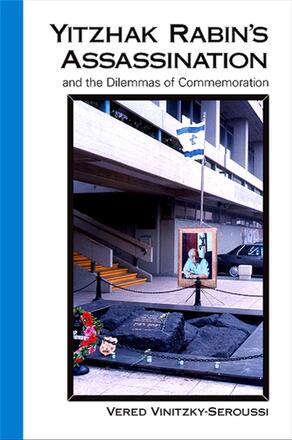
Yitzhak Rabin's Assassination and the Dilemmas of Commemoration
Alternative formats available from:
Examines how Israeli society has commemorated Yitzhak Rabin.
Description
How does a society cope with the challenge of acknowledging and commemorating difficult aspects of its past? In Yitzhak Rabin's Assassination and the Dilemmas of Commemoration, Vered Vinitzky-Seroussi develops a timely sociology of commemoration, drawing on the public memory of Israel's Prime Minister Yitzhak Rabin, who was assassinated at the end of a peace rally in Tel Aviv in 1995. She identifies and analyzes the building blocks from which commemoration is made: agency, space, time, and narrative. Acting as a guide, she leads the reader through monuments and gravestones, memorial services and political demonstrations, rituals both moving and banal, and individuals determined to remember, as well as those who wish to forget. Yitzhak Rabin's Assassination and the Dilemmas of Commemoration examines the meanings, boundaries, opportunities, and limits of commemoration, a phenomenon not unique to Israel but shared by many nations across the globe.
Vered Vinitzky-Seroussi is Associate Professor of Sociology at the Hebrew University of Jerusalem and the author of After Pomp and Circumstance: High School Reunion as an Autobiographical Occasion.
Reviews
"The empirical analysis is very rich and highlights the political divisions in Israeli society … the book is a valuable contribution to the study of Israeli politics and to a 'difficult past' that the literature has neglected. " — Political Studies Review
"Somewhat unconventionally but provocatively, sociologist Vinitzky-Seroussi locates in her acknowledgments how the 1995 assassination of Israel's prime minister prompted this study of the complexities and significance of commemoration. What follows is a richly theorized and well-researched exploration of the contours and toponymy of the 'map of memory' that locates Rabin as 'a highly present absence' in time and space. " — CHOICE